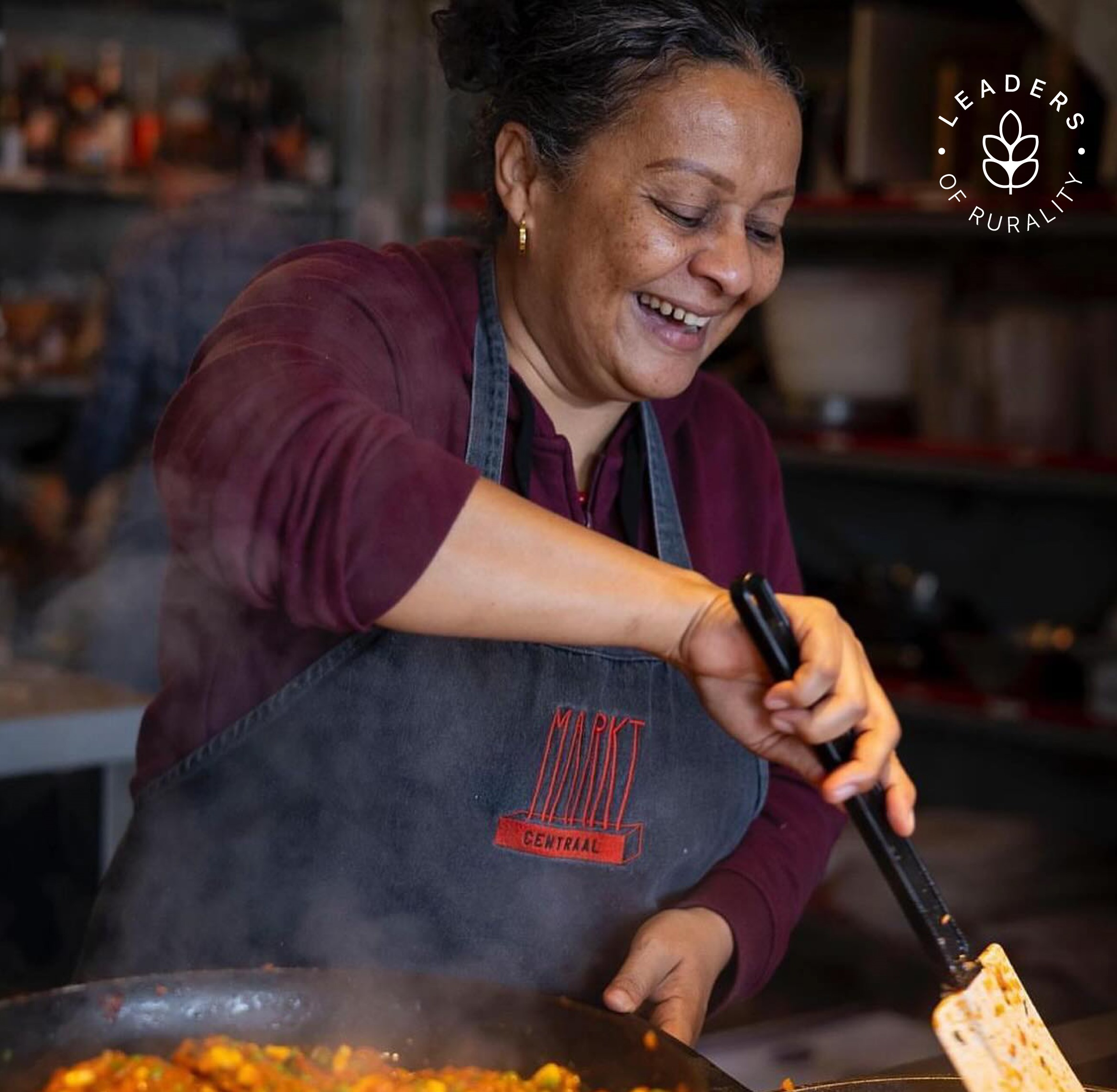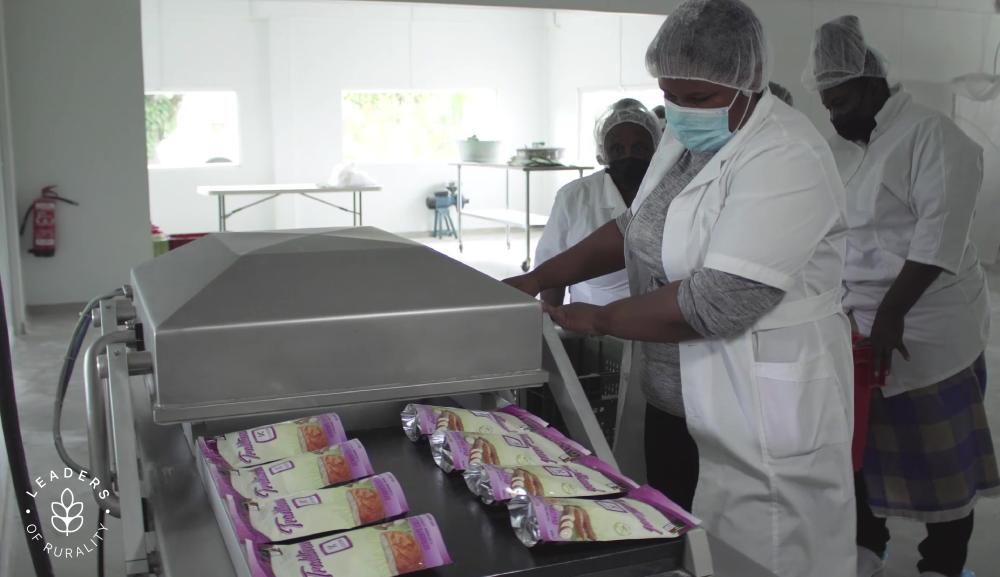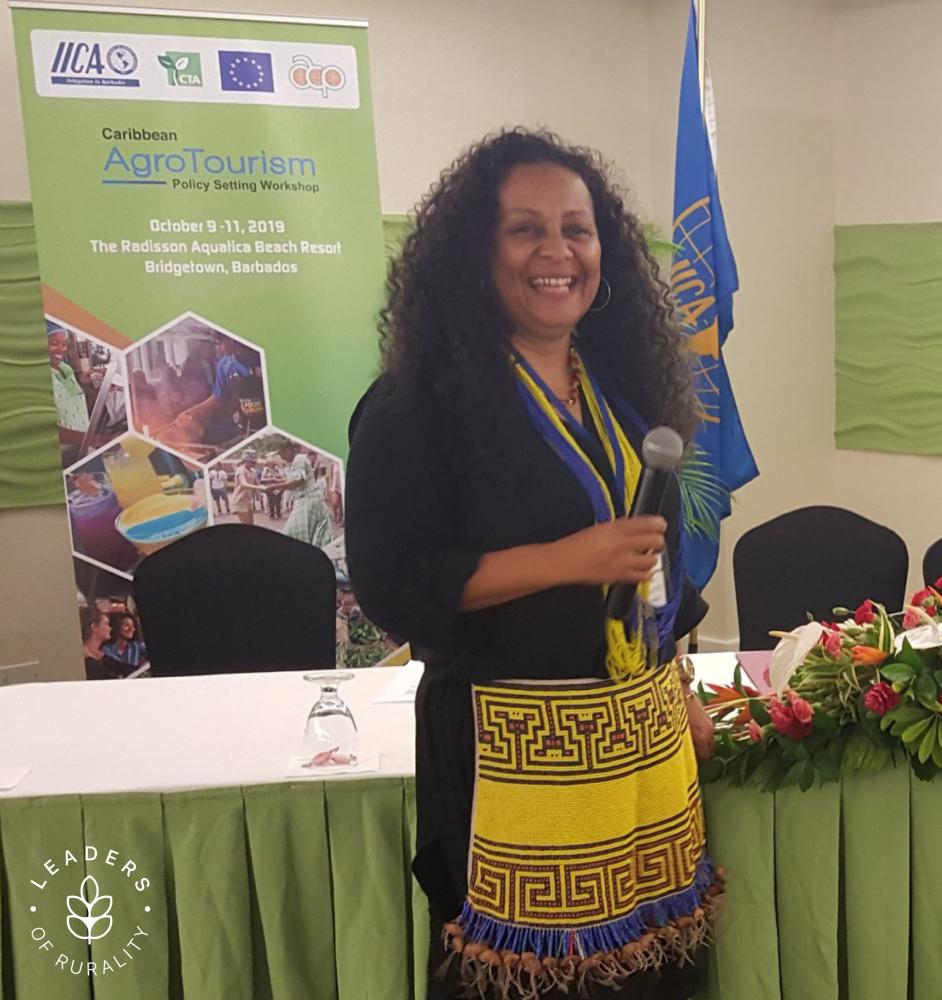The cooperative brings together women farmers and entrepreneurs who, while producing and industrializing food, share the responsibilities of educating their children and ensuring their families’ nutrition.

San José, 7 August 2024 (IICA) – Tania Liew-A-Soe, founder and President of a women’s cooperative that has added value to traditional crops in Suriname and now industrializes and exports them, has been recognized as one of the “Leaders of Rurality of the Americas” by the Inter-American Institute for Cooperation on Agriculture (IICA). Liew-A-Soe will receive the “Soul of Rurality” award in recognition of her work. This award is part of an initiative by the agency specializing in agricultural and rural development to recognize the work of men and women who make a difference in the countryside across the American continent, crucial for food and nutritional security and environmental sustainability.
Wi! Uma Fu Sranan, which means “We, the women of Suriname” in the native language, is the name of the cooperative that brings together female farmers and entrepreneurs. They not only produce and industrialize food but also share the responsibilities of educating their children and ensuring their families’ nutrition. The cooperative promotes the visibility and recognition of the socioeconomic contributions of its members for the benefit of society. It also facilitates the full participation of women in decision-making, encourages respect for the environment, builds capacities, and works to improve market access and economic opportunities.
Wi! Uma Fu Sranan was founded in the Brakopondo region, in the hinterland of Suriname, a South American country with a Caribbean coastline that was a Dutch colony and is inhabited by diverse ethnic groups. “We started the cooperative in 2013 with the idea of ensuring that women farmers were recognized as an important part of the food value chain, and we succeeded. These women have historically received very little reward for their work,” said Tania. “Many times, farmers are undervalued despite being the ones who sustain global food security. This is something we wanted to change in Suriname, and to achieve this, we understood that it was necessary to get involved in processing raw materials,” she adds.
The designation as a Leader of Rurality of the Americas is a recognition for those who fulfill an irreplaceable dual role: being guarantors of food and nutritional security and at the same time guardians of the planet’s biodiversity through production in any circumstance. The recognition also serves to highlight the ability to drive positive examples for rural areas in the region.
Breaking the cycle of poverty
In the rural communities of Suriname’s hinterland, life has always revolved around agriculture. “Agriculture has not only been essential for our own food security but also for families to generate some income through food surplus. However, this path was never strengthened because intermediaries came and bought the products at low prices to later sell them at much higher prices in the markets. So, we humbly tried to put an end that,” explained Tania, who spent a season in the Netherlands in 2002 and returned determined to work for the well-being of hinterland communities, which are often remote with limited infrastructure and transportation.

The women of the cooperative produce cassava and taro, among other traditional crops in the country. But the novelty is that they process them in various ways. They produce cassava bread, pancakes, and porridge, as well as baby food, thanks to technologies obtained through various international cooperation projects. For industrialization, the women had to create a company called Surivit NV, which now produces tasty and healthy foods.
In this regard, IICA has been a key ally, says Tania. “Since 2013, we have had a close relationship and know we can count on them. The knowledge that IICA technical experts have in Suriname has helped us avoid losing all our crops during droughts or floods, which have become more frequent due to climate change. Thanks to them, we have created water reservoirs for times of water scarcity and implemented crop rotations that have been highly beneficial. Climate change is a problem, but fortunately, we have partners to face it.”
Several of the 38 women in the cooperative traveled to the Netherlands to participate in food festivals, and many received training through various international cooperation projects. Thanks to these advances, they are now exporting mainly to the Netherlands, where many Surinamese immigrants live, but also to other Caribbean countries such as Trinidad and Tobago, and even to the United States.
“We created the cooperative to ensure that women have a secure income. Our main objective was to break the vicious cycle of poverty that has existed for decades in rural areas of Suriname,” says Tania. She believes solidarity has a key role as the only way for rural communities to prosper. “What we are doing,” she reflects, “is what all human beings should do, which is to care for and strengthen one another.”

Today, Tania is convinced that she has found her purpose in life. “When you find it,” she says, “you become a complete person and can live a fulfilling life. You can even enjoy obstacles, headaches, and problems; every day is a blessing.” And nothing excites her more than agriculture. “I believe,” she says, “that the world must realize that farmers are the most important people because they guarantee food security. Imagine a world without family farmers. Would it be possible? No. So the message I want to give to producers is to fight for their rights. They must be aware of their importance because one can go one or two days without food, but not a lifetime. So farmers must raise their self-esteem. Because life wouldn’t exist without agriculture. It’s as simple as that.”
More information:
Institutional Communication Division.
comunicacion.institucional@iica.int
Photo Gallery











